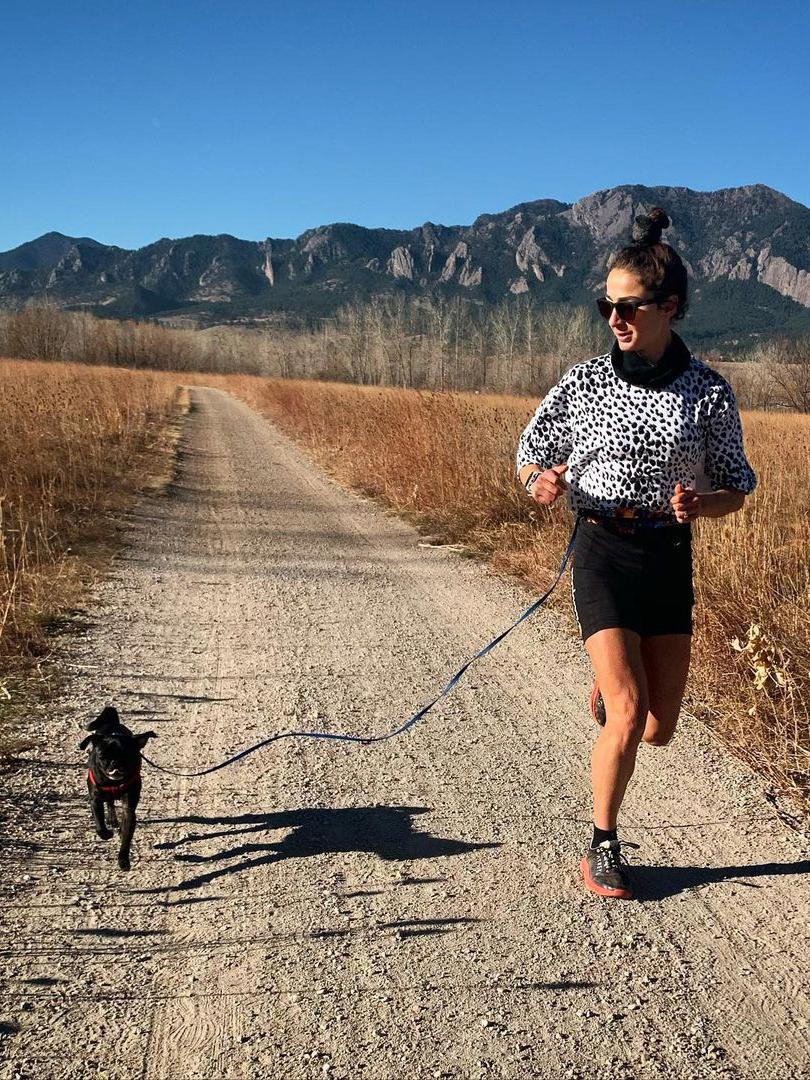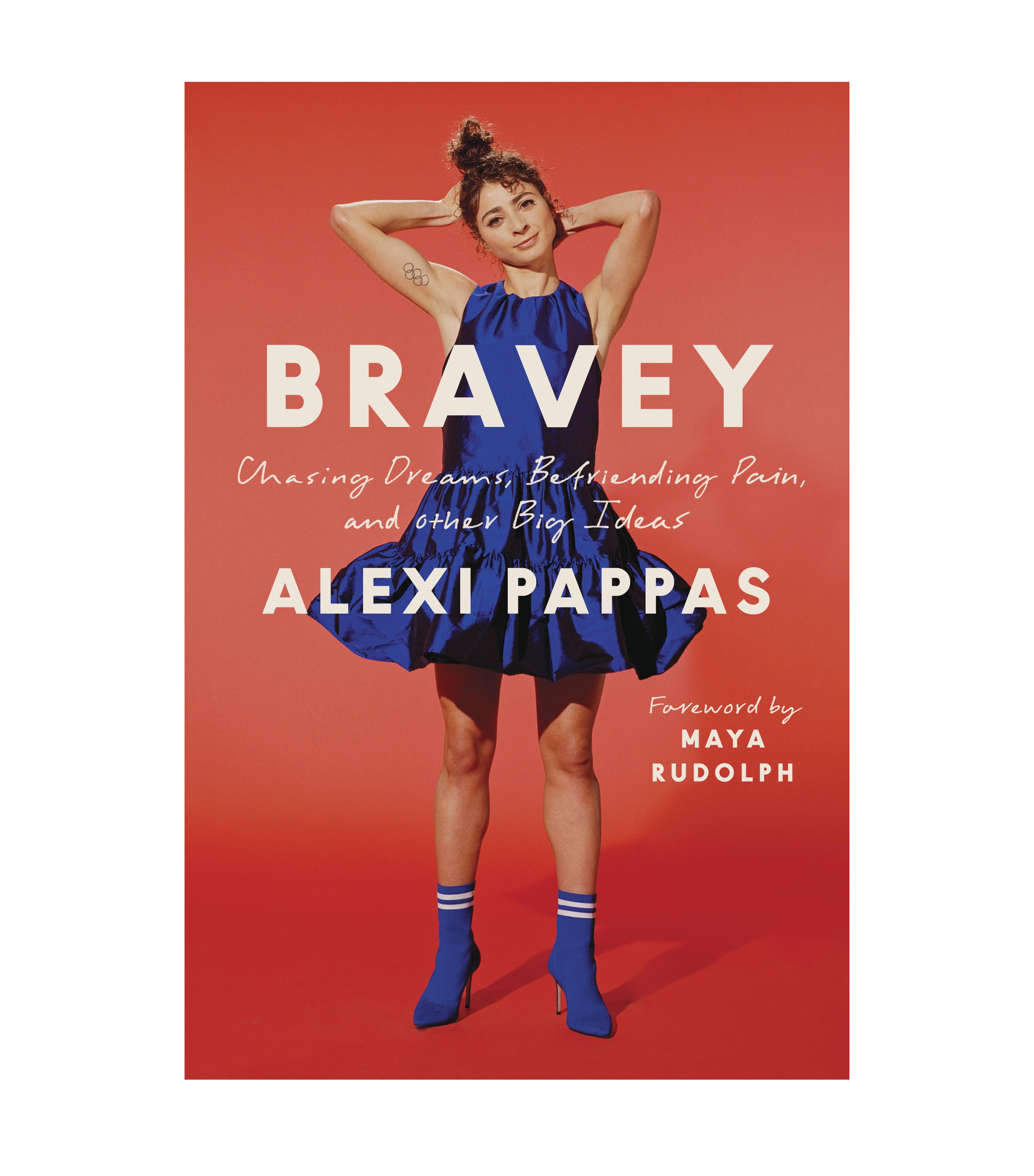This Olympian Is on a Mission to Make Mental Health a Priority in Sports

In recent years, many professional athletes have been honest about their mental health struggles. The most decorated Olympian of all time, Michael Phelps, has been very vocal about depression and managing his mental health. He has donated to the digital app Talkspace and has partnered with the brand to bring more attention to mental healthcare. Two-time Olympic gymnast Aly Raisman has also spoken out about her own journey, which includes struggling with PTSD after sexual abuse. Countless other athletes have penned essays and shared their experiences through social media.
What was once considered a "taboo" topic of sorts is now getting more attention, which is so important for everyone. To see these powerful and strong athletes admit their own vulnerabilities makes even more of an impact in normalizing these discussions. It has encouraged so many others to start taking care of their mental health.

Alexi Pappas is another athlete who has been a strong advocate in the space. The Olympian, writer, actress, and filmmaker recently wrote an op-ed in The New York Times, making the case that professional sports should support mental health and that "we should view mental health and physical health as equally important and as treatable as a torn ACL." After competing in the 2016 Olympics, the runner says that she was not prepared for the clinical depression that came afterward.
Now, Pappas is sharing more about her life, her experience as an athlete, and her mental health struggles in her memoir of essays Bravey. We got the chance to chat with Pappas about her new book, how she practices self-care, and how she stays motivated. See what she had to say below.
What was your inspiration for this new book? Why did you want to write it?
I actually began working on Bravey shortly before the 2016 Olympics. A New York Times profile on me had just come out, which sparked interest from book agents and publishers curious to learn more about my story and the "bravey" phenomenon. Being a role model is very important to me. I see that as my most important function as a professional athlete, and writing a book was a unique opportunity to share my full story and go deeper than what you can do on social media.

You've been so vocal about your mental health struggles—that's something we admire so much. Why was it important for you to share that side of your life?
I lost my mom to suicide when I was four years old, but she didn't have to die. The way that people talk about and understand mental health has changed so much in the decades since, but there's still a long way to go. In my own experience, my entire perspective changed when I began to see my brain as a body part like any other: It can get "injured," and it can also recover. Once I approached depression the same way I would approach a hamstring strain or any other injury, I suddenly felt empowered. It's a simple shift in a perspective that makes all the difference in the world. I believe I was equipped to "flip that switch" because of my family history, but nobody else needs to experience what I have in my family to come to the same conclusions. Why not share my story?

What changes or growth do you hope to see in the mental health space in 2021, especially from an athlete's point of view?
I would love to make the term "the brain is a body part" part of our everyday language. Physical therapy and "prehab" are now a commonly accepted part of elite athletics to the point where even high school athletes regularly see massage therapists, chiropractors, and PTs. It was not that way when I was growing up. It makes sense that the same evolution will happen on the mental side, too.

What are some ways you take care of your mental health?
The first and most important thing is to simply recognize that your brain is a body part like any other. It can get fatigued and need rest, and there may also be times when it needs help. I pay attention to my thoughts and feelings just like I pay attention to my feet and legs after a long run, and I take action—set an appointment with my therapist—if I notice anything that feels off. I see physical therapists all the time. Why not sprinkle some mental-therapist appointments in there, too?
How do you practice self-care?
I recognize that willpower is a finite and depletable resource, and I only have so much to give any one day. When I notice my willpower is getting low, I'll try and press pause. I'll reevaluate the rest of my day. And to recharge, I love cooking, napping, and taking walks with my dog.

You're no stranger to competition and training. How do you stay motivated? Do you have any advice for people on finding motivation in working out?
Recognize that dreams come true very slowly and then all at once. Early progress takes the longest, and that's okay! Also, with training specifically, it helps to expect that it will get hard and pain will come. Visualize yourself overcoming it. That way, when the hurt sets in, you've already prepared yourself for it, and it feels less shocking. Therefore, you'll be less likely to want to quit!
What are your tips for staying motivated and on track with goals?
One of my Olympic coaches taught me the 30-30-30 rule—I go into more detail on this in my book, but basically, the rule says that, when you are training hard for a big race, you should feel good one-third of the time, okay one-third of the time, and crappy one-third of the time. If you feel good all the time, you might not be pushing yourself hard enough. But if you feel overwhelmed too often, it might be time to dial it back. My big takeaway from this rule, though, is that you should expect it to be hard and crappy some days! And that's okay. It means you are chasing a dream.

Did you set any intentions or goals for 2021? How do you approach your goals?
I have big goals for 2021, starting with seeing my book, Bravey, out into the world this January! I write all my goals down so that, when I get them, I remember I was brave enough to want them in the first place. Then, I break them down into the smallest possible steps, so that way, I can enjoy the pleasure of crossing to-dos off my list as often as possible.
Next up: 4 Myths About Therapy You Should Stop Believing Now
If you or someone you know needs help, you can contact the SAMHSA National Helpline at 1-800-662-4357 for support and more information.
This article is provided for informational purposes only and is not intended to be used in the place of advice of your physician or other medical professionals. You should always consult with your doctor or healthcare provider first with any health-related questions.
Sarah is lifestyle writer and editor with over 10 years of experience covering health and wellness, interior design, food, beauty, and tech. Born and raised in Los Angeles, she attended New York University and lived in New York for 12 years before returning to L.A. in 2019. In addition to her work atBest Knockoff Luxury Clothing , she held editor roles at Apartment Therapy, Real Simple, House Beautiful, Elle Decor, and The Bump (sister site of The Knot). She has a passion for health and wellness, but she especially loves writing about mental health. Her self-care routine consists of five things: a good workout, “me” time on the regular, an intriguing book/podcast/playlist to unwind after a long day, naps, and decorating her home.
